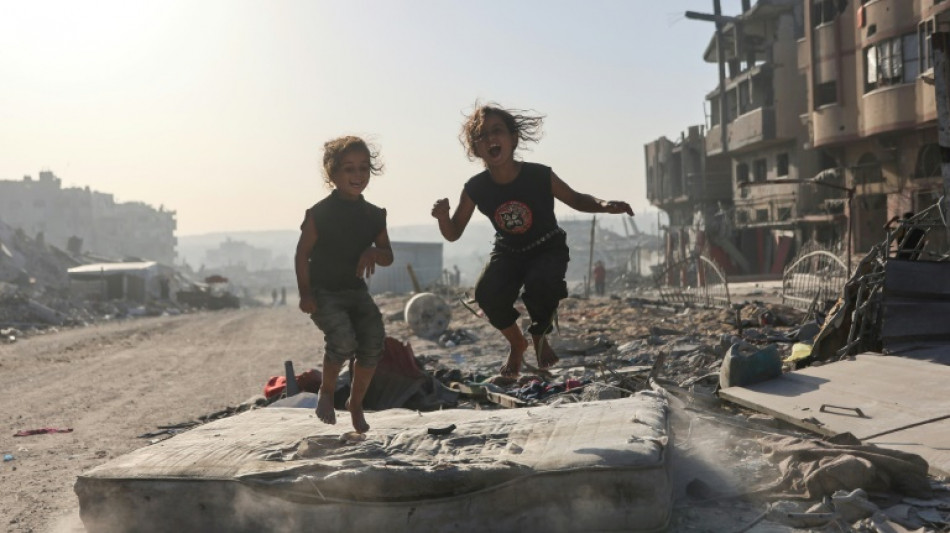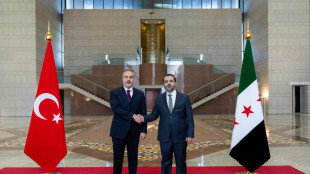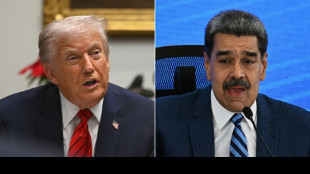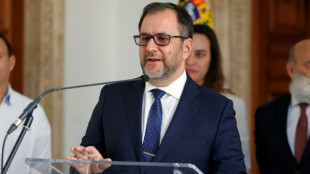
US pressures Israel on West Bank, Rubio voices confidence in Gaza truce

US President Donald Trump issued a stark warning to Israel over annexing the West Bank in an interview published Thursday, as visiting Secretary of State Marco Rubio voiced confidence that a US-backed ceasefire in Gaza would hold.
Trump's remarks were made to Time magazine by telephone on October 15 -- just days after the Gaza truce plan he spearheaded took effect -- but were only published on Thursday.
"It won't happen," Trump said when asked about calls in Israel to annex the Palestinian West Bank, which has been occupied by Israel since 1967. "It won't happen because I gave my word to the Arab countries."
He added: "Israel would lose all of its support from the United States if that happened."
Israeli lawmakers on Wednesday advanced two bills paving the way for West Bank annexation, leading to condemnation Thursday from US Vice President JD Vance, who was in Israel at the time and who echoed Trump's comments.
The United States remains Israel's most important military and diplomatic supporter.
Israeli Prime Minister Benjamin Netanyahu's Likud party boycotted and criticised the vote, though members of his ruling coalition support annexation.
Arab and Muslim countries, which the US has been courting to provide troops and money for a stabilisation force in Gaza -- a key element of Trump's ceasefire plan -- have warned that annexation of the West Bank is a red line.
In a joint statement carried by Saudi state media on Thursday, more than a dozen such states including Saudi Arabia, Jordan and Turkey condemned the Israeli parliament's vote.
Rubio, one of a string of top US officials to visit Israel in recent days, had warned before his arrival that the annexation moves were "threatening" to the fragile ceasefire in Gaza.
But he expressed confidence in the truce after meeting with Netanyahu on Thursday.
"We feel confident and positive about the progress that's being made. We're clear-eyed about the challenges, too," said Rubio, just hours after Vance wrapped up his own three-day visit.
- 'Very stupid' -
As he ended his trip, Vance hit out at the votes in Israel's parliament in favour of examining two annexation bills, which mean they will be brought forward for further readings.
"If it was a political stunt it was a very stupid political stunt and I personally take some insult to it," Vance said.
"The West Bank is not going to be annexed by Israel, the policy of the Trump administration is that the West Bank will not be annexed by Israel, that will continue to be our policy."
Netanyahu, standing next to Rubio after their meeting Thursday, was quick to avoid any suggestion of tension with Washington, calling the secretary an "extraordinary friend of Israel" and saying that the back-to-back visits were part of a "circle of trust and partnership".
Violence has surged in the West Bank since the war began in Gaza with Hamas's October 7, 2023 attack.
According to the Ramallah-based Palestinian health ministry, Israeli troops and settlers have killed nearly 1,000 Palestinians, including militants and civilians, since October 2023.
Over the same period, at least 43 Israelis, including members of the security forces, have died in Palestinian attacks or Israeli operations, official figures show.
The Palestinian Authority exercises limited self-rule in parts of the West Bank.
- 'Tough task' -
The Gaza truce faced its toughest test on Sunday, when Israeli forces launched strikes in Gaza after two soldiers were killed. The strikes killed at least 45 Palestinians, according to the health ministry in Hamas-run Gaza.
Gaza's Nasser Hospital said that one person was killed in an Israeli drone strike on Thursday in the Khan Yunis area.
During his visit, Vance warned that disarming Hamas and rebuilding Gaza would be a "very, very tough task".
Under Trump's 20-point peace plan, an international security force drawn from Arab and Muslim allies would oversee Gaza's transition as Israeli troops withdraw.
Delegations from Hamas and its rival Fatah, meanwhile, met in Egypt to discuss post-war arrangements for Gaza, Egypt's state-linked Al-Qahera News reported on Thursday.
- 'Not enough food' -
In Gaza, civilians displaced by two years of war continued to struggle.
"We were afraid of dying during the war, and now we're afraid of living after it," said Maher Abu Wafah, 42.
"Our lives and our children's future are slipping away before our eyes. We just want a stable life."
The World Health Organization said on Thursday there had been little improvement in the amount of aid going into Gaza since the ceasefire took hold -- and no observable reduction in hunger.
"The situation still remains catastrophic because what's entering is not enough," WHO chief Tedros Adhanom Ghebreyesus told reporters, lamenting that "there is no dent in hunger because there is not enough food".
W.Mroz--GL

 London
London

 Manchester
Manchester
 Glasgow
Glasgow
 Dublin
Dublin
 Belfast
Belfast
 Washington
Washington
 Denver
Denver
 Atlanta
Atlanta
 Dallas
Dallas
 Houston Texas
Houston Texas
 New Orleans
New Orleans
 El Paso
El Paso
 Phoenix
Phoenix
 Los Angeles
Los Angeles



